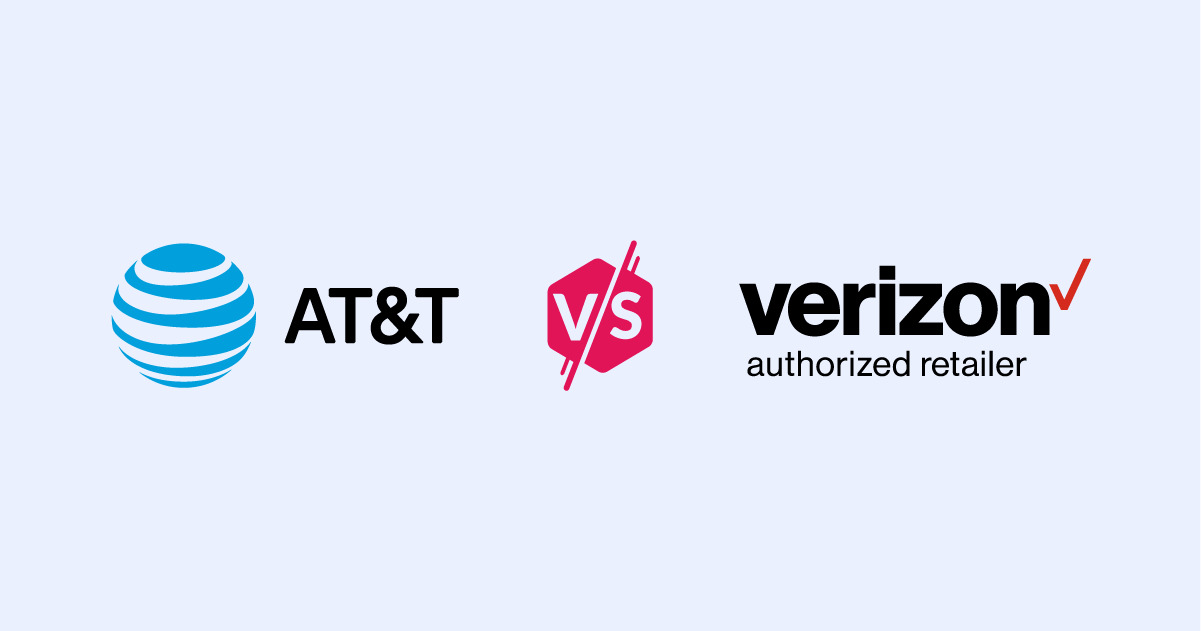Choosing between AT&T and Verizon, the wireless titans, can be a daunting task. Both offer extensive coverage, a plethora of plans, and enticing device options. This in-depth analysis breaks down their respective strengths, pricing structures, unique perks, and potential drawbacks to help you pick the carrier that aligns best with your needs and budget.
The Coverage Battleground
Let’s address the elephant in the room: network coverage.
- Verizon’s Edge: Verizon generally boasts a wider and slightly more robust nationwide network, particularly appealing to frequent travelers and those in rural areas.
- AT&T’s Strength: AT&T holds its own with solid coverage in many major cities and metro areas. It continues expanding its 5G reach at a rapid pace.
- The Bottom Line: It’s crucial to check coverage maps specific to your location. Both carriers offer coverage tools on their websites:

Unlimited Plans: The Core of the Showdown
Both AT&T and Verizon focus heavily on unlimited talk, text, and data plans. Here’s a general tier breakdown:
- Budget-Friendly:
- AT&T: “Value Plus” (limited 5G access, potential temporary slowdowns during congestion)
- Verizon: “5G Start” (similar restrictions as AT&T’s budget tier)
- Mid-Range Powerhouse:
- AT&T: “Unlimited Extra”
- Verizon: “5G Play More”
- Premium Perks:
- AT&T: “Unlimited Elite”
- Verizon: “5G Do More”, “5G Get More”
Plan Comparison Considerations
- Price: AT&T often edges out Verizon with slightly lower prices on comparable plans. However, pricing may vary slightly based on your location.
- 5G Access: Both carriers differentiate their unlimited plans by the level of 5G access granted. Higher-tier plans offer faster 5G speeds (Ultra Wideband on Verizon, 5G+ on AT&T)
- Data Caps: Carefully examine data thresholds where your speed might be deprioritized or temporarily slowed during network congestion. This is more common on lower-priced plans.
- Mobile Hotspot: If using your phone as a hotspot is important, compare the amount of high-speed hotspot data included in different plans.
The Perk Factor
To sweeten the deal, AT&T and Verizon often bundle perks with their mid to upper-range unlimited plans:
- Streaming Subscriptions: HBO Max (on certain AT&T plans), Disney+, Hulu, ESPN+ (Verizon plans) and other services may be included.
- Cloud Storage: Some plans offer additional cloud storage for backups.
- International Perks: Verizon’s higher-tier plans tend to offer more in the way of international minutes and data roaming in Mexico and Canada.
Beyond Unlimited: Prepaid & Family Plans
- Prepaid: Both carriers offer prepaid options for those seeking flexibility without contracts. AT&T’s prepaid plans often prioritize affordability, while Verizon sometimes has better data allowances.
- Family Plans: Both offer discounts when adding multiple lines. The best value depends on how many lines you need and what features you prioritize.
The Customer Experience Factor
- Retail and Support: Verizon often gets higher marks for its in-store experience and customer service accessibility.
- Account Management Tools: Both AT&T and Verizon offer apps and online portals for managing your account, paying bills, and tracking usage.
Tips for Making the Right Choice
- Prioritize your Needs: Are you a data-heavy user? Do you need international perks? Does maximum coverage outweigh price by a little?
- Compare, Compare, Compare: Use carrier websites to compare plans side-by-side, focusing on what’s most important to you.
- Factor in Device Deals: New phone deals and promotions can sometimes sway the decision towards one carrier especially if you’re planning to upgrade your device along with switching carriers.
- Read the Fine Print: Don’t get blinded by introductory offers. Understand regular pricing after promo periods end, and be mindful of overage fees in plans without unlimited data.
- Consider MVNOs: If coverage is good in your area, smaller carriers (MVNOs) operating on AT&T’s or Verizon’s networks can provide significant savings. Examples include Cricket Wireless (AT&T network) or Visible (Verizon network).
Beyond the Big Two
While AT&T and Verizon dominate, don’t overlook T-Mobile. Its expanding 5G network and focus on customer-friendly perks make them a compelling contender. In some locations, regional carriers might offer competitive regional plans worth exploring.
The Verdict: It’s Not One-Size-Fits-All
There’s no universal “winner” between AT&T and Verizon. The best carrier for you depends entirely on your individual needs, location, and priorities. Here’s a recap to guide your decision:
- Choose AT&T if:
-
- You’re budget-conscious and have solid AT&T coverage in your area.
- Bundled streaming services are appealing to you.
- Choose Verizon if:
-
- You crave maximum network coverage and reliability, even if it costs slightly more.
- International travel perks are essential.
- You value a potentially stronger in-store support experience.
The Power of Informed Decisions
By carefully weighing coverage, plan features, perks, and your unique usage patterns, you’ll empower yourself to choose the carrier that delivers the best value and connectivity experience for your lifestyle. Remember, the wireless market is dynamic – revisit comparisons periodically to ensure you’re always getting the best possible deal.